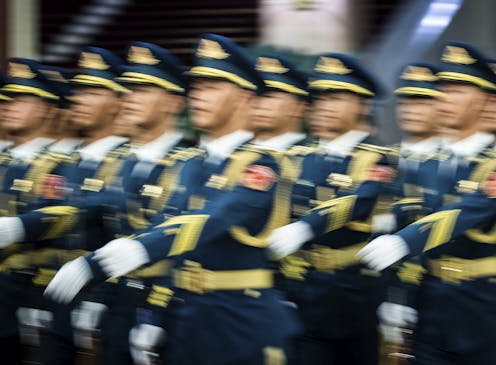
Science + Tech – Articles, Analysis, Opinion
Displaying 2351 - 2375 of 3580 articles

By looking closely at traits like wing feathers and spot patterns, a computer scientist trained an algorithm to recognize individual woodpeckers.

Without much delay, Facebook and Twitter could make significant changes to limit political manipulation and propaganda. Will they? And will users ask it of the social media giants?

Private companies – many based in the US – are blocking access to their websites from particular countries around the world. It’s contributing to a splintering of the global internet.

Cancer immunotherapy is a revolutionary treatment for many but it can cause nasty side effects like inflammation of the colon that can derail treatment. Could the solution be a fecal transplant?

Facebook retired its ‘Move fast and break things’ slogan – perhaps because, as new research from Brazil confirms, democracy is among the things left broken by online misinformation and fake news.

George H.W. Bush’s achievements in space are often overlooked but have significantly contributed to America’s current space program.

Some AI technologies aren’t advanced enough to provide useful insights, but simpler tools can yield new opportunities to explore the humanities.

México hizo de la conectividad a Internet un derecho constitucional en 2013, pero la mayoría de las personas pobres aún no tienen acceso. De obtenerlo, gozarían de una mayor movilidad económica.

Genetically modified mosquitoes breed fear and suspicion, especially since the research happens behind closed doors, away from the public. Now scientists and architects are trying to change that model.

In an era of big scientific collaborations, China’s renegade actions have hurt its reputation. As international researchers back away, it may be the country’s military that ultimately suffers.

It turns out to be fairly complicated to figure out how electricity will flow through materials – a crucial question for designing new electronics and semiconductor materials.

To announce the world’s first gene-edited babies, scientist He Jiankui did what movie directors do: release a trailer on YouTube. The video is a positive spin on unauthorized gene editing.

Questions abound about whether the scientist who created the first gene edited human beings took shortcuts in the ethical oversight process. But pedantically focusing on protocol misses the point.

Why do people believe absurd lies about George Soros? The answer depends on the platforms you use, the media influencers you follow and the memes you see.

Chinese researcher He Jiankui told a spellbound audience how he created gene-edited babies. With a couple of revealing slides, we can see what he did and speculate what health problems might ensue.

One big problem with plastics is that they’re largely made of petroleum. Sourcing bio-polymers from plants and bacteria has some big benefits – and the technology is starting to take off.

Governments can help citizens protect their own cybersecurity by providing practical advice and meaningful support.

Years of research into how humans work best together yield lessons useful for designing robots to interact with people.

The announcement of the birth of babies with edited genes has been met by a deluge of scientific and ethical criticism. Public discussion focuses on risks and benefits – was breaking this taboo worth it?

A Chinese scientist has revealed he edited the DNA of twin girls born through in vitro fertilization. These girls are designed to be resistant to HIV. Is the edit a medical necessity or an enhancement?

The battery technology and cooling systems needed for electric aircraft to lift people and cargo are getting closer to reality, but they’re still very different from electric cars and trucks.

High school girls who are more confident in their math abilities are more likely to pursue math in college and beyond.

How does being thankful about things in your own life relate to any selfless concern you may have about the well-being of others? A neuroscientist explores the gratitude/altruism connection.

Ionic winds – charged particles flowing through the air – can move airplanes using only electricity; no propellers or jet engines needed. The scholar who led the project explains how it works.

Food suppliers and sellers around the world are using blockchain technologies to ensure that what consumers buy is labeled clearly and accurately.
